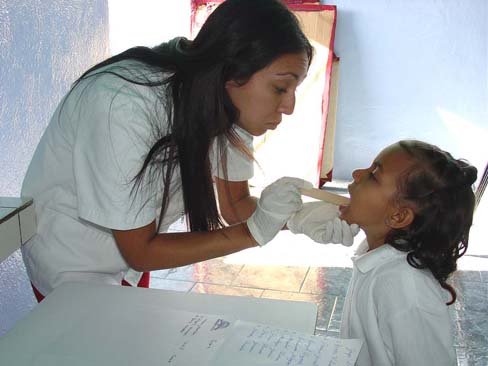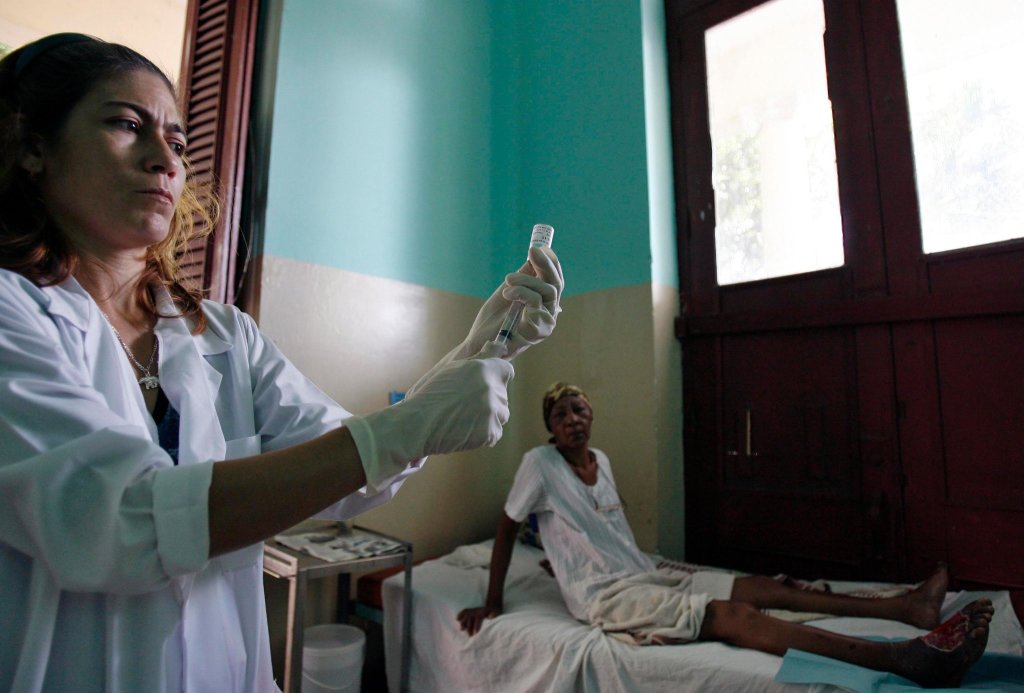
Can Cuba escape poverty but stay healthy?
NEW YORK – Cuba has many economic problems, including the inefficiencies of central planning and the long trade embargo with the United States. Yet the country has a thriving public health system that has made its population among the healthiest in the world.
Researchers call it the Cuban Health Paradox. The country’s economic isolation has left it poor, but people there live as long as their counterparts in much richer countries. According to data from the World Bank, life expectancy for someone born in Cuba in 2011 was 79 years, just a little longer than that of an infant born in the United States the same year. But the U.S. economy is more than eight times larger, per person, than Cuba’s.
Some countries with similar wealth as Cuba’s have life expectancies more than 25 years lower.
Cuba stands out in other measures of healthiness. The low percentage of children who die before the age of 5 is similarly unusual, especially in the Americas. For the size of its economy, Cuba does a remarkable job of keeping its children healthy.
“I am often asked why is this poor country so healthy, but you also have to ask why is this healthy country so poor?” said Jerry Spiegel, a professor at the University of British Columbia’s School of Population and Public Health. Spiegel has studied the Cuban health system for more than 15 years.
Many important drugs are either unavailable in Cuba or so expensive that they are impractical. Specialized medical care is limited. Even basic supplies, such as the chlorine used as a disinfectant, can be hard to come by. There was a time when anesthesia was so scarce that surgeons used acupuncture to control patients’ pain during operations.
But the country has invested heavily in primary care and public health measures. It has an unusually high number of doctors, and the government uses central planning to ensure that they are spread evenly across the country. The bulk of health care is government-financed, which means that nearly every Cuban has equal access to the same health system. The country has one of the highest childhood vaccination rates in the world. And Cuba has for decades sent doctors to help with health crises around the world, including the current Ebola outbreak in Africa.
The Communist government has focused efforts on ensuring access to public education, housing, and nutrition – investments that health researchers say can be as important to health as medicine and doctors. Spiegel said he had observed an unusual coordination of government functions related to health. When the country was experiencing an outbreak of dengue fever in the 1990s, he said, public officials treated and isolated patients but also cleaned up the places where mosquitoes that spread the disease were breeding.
 The result: Cuba’s citizens are much more likely to die from the maladies that kill rich people – cancer and heart disease – than the communicable diseases that kill in most poor places.
The result: Cuba’s citizens are much more likely to die from the maladies that kill rich people – cancer and heart disease – than the communicable diseases that kill in most poor places.
Researchers like to study the Cuban system because it might hold lessons about how to keep a country healthy. Historically, the health of a country’s population has been correlated with its overall wealth. But in recent history, that tight relationship has started to break down.
Cuba’s health care system might benefit from its relative isolation. In many countries with economies the size of Cuba’s, doctors and other medical professionals leave to work in the United States. Cuba has suffered no such brain drain.
Spiegel said the country’s economic isolation might have other advantages, too: The country has become much more self-reliant, he said, and has invested in its own biomedical research. Those are all features that may change if the United States allows the country to open up to more liberal trade and immigration policies. However, the changes are also likely to bring improved wealth and more advanced medical technologies, which may help the country grow even healthier.
(From The New York Times)


